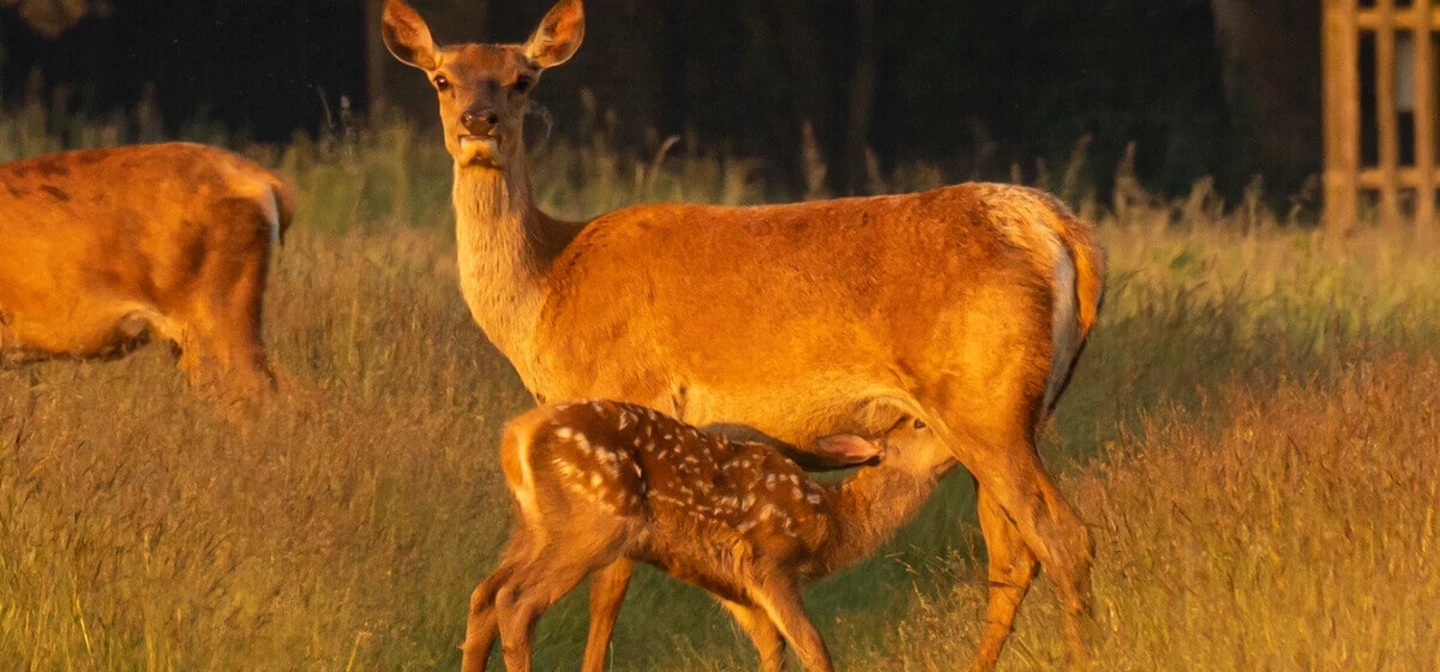
‘Dogs on leads’ to be compulsory during deer birthing season in Bushy and Richmond Parks
From Monday 18 May until Monday 6 July, dogs will be required to be on a lead in all areas of Richmond and Bushy Parks.
Over the next few weeks, 300 baby deer will be born in Richmond and Bushy Parks. The season marks a vulnerable time for female deer, who hide their young in bracken and long grass to conceal them from dogs and other perceived predators.
Deer are excellent mothers and they will be on constant high alert, unable to relax if they see a dog in the vicinity. During the deer birthing season, protective mother deer have been known to give chase and attack dogs, even if they are at a distance and not acting aggressively.
Deer are instinctively frightened of dogs, and this fear has not been helped by recent events, in which 21 separate incidents of dogs chasing deer in Bushy and Richmond Parks have been recorded since the end of March. Of those recorded, two incidents resulted in deer sustaining fatal injuries, including a pregnant deer just weeks away from giving birth. A further two incidents put visitors in harm’s way by causing a stampede of deer through park visitors and their families.
Simon Richards, Park Manager at Richmond Park, said:
“Unfortunately, deer worrying is not a new occurrence, however over the last few weeks we’ve received many reports on the issue. We are about to head into deer birthing season, where female deer will fear dogs harming their young and will act defensively.
“We believe strongly that if dogs are not on leads, we will see an increase in dogs chasing deer, a heightened risk of female deer attacking dogs, and a higher incidence of newborn deer killed by dogs.
“It is important to emphasise that we always advise that dogs, irrespective of how good their recall is, be kept on leads during deer birthing season. This is for the wellbeing of our deer, and for the safety of dogs and visitors. This year, for the avoidance of doubt, we will be making it compulsory. We are sorry for any inconvenience caused and would like to stress it’s a temporary measure that will end on the 6th July. We thank all our visitors for their support with these measures.”
Recently, park management have also noticed an increase in visitors walking their dogs in more remote areas of the parks. This is likely to be because of social distancing, however many of these remote sections of the park, are also quiet refuges for deer and where they give birth. To help dog walkers plan their route in advance, The Royal Parks has published maps which show the deer nursery areas, so that dog walkers know which areas to avoid.
Advice to dog walkers
• Keep your dog on a lead at all times, and in all areas of the parks
• Avoid the nursery areas shaded in orange on the maps. These are typically areas of bracken and long grass where newborn deer could be concealed. These will be signposted but it’s wise to plan your walking route in advance.
• If a deer charges, let go of the lead so the dog can run away. Although keeping dogs on leads and avoiding deer birthing areas significantly reduces the likelihood of deer and dog conflict, it does not eliminate risk. The only way to completely eliminate risk for your dog is to avoid Bushy and Richmond Parks altogether during deer birthing season (until 6 July).
Advice to all visitors
• Give deer plenty of space. Always keep a minimum of 50 metres away
• Avoid nursery areas. Deer may act defensively towards visitors if they inadvertently get too close to their young.
• Do not touch a newborn deer, even if it’s on its own. It is not abandoned, it’s mother will be grazing nearby.
To report an injury to a person, dog or deer, please contact:
Richmond Park: 0300 061 2200 or email richmond@royalparks.org.uk
Bushy Park 0300 061 2250 or email bushy@royalparks.org.uk
If you witness a dog chasing a deer, immediately call the on-call police for Richmond and Bushy Parks on 07920 586546.
Further reading
-
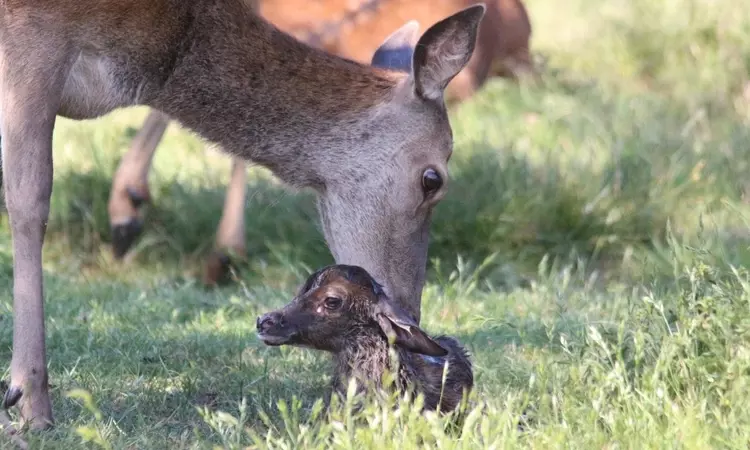
Six things you should know about deer birthing season
Discover when deer have babies during their birthing season. Explore their habits and the importance of respecting their privacy in Richmond and Bushy park
-
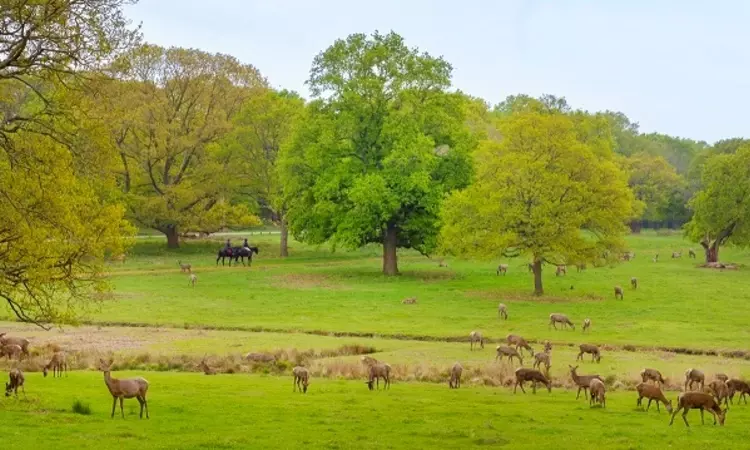
Deer safety advice
The deer in Richmond and Bushy Park are wild and can be unpredictable. Read our safety advice for park visitors including photographers and dog walkers.
-
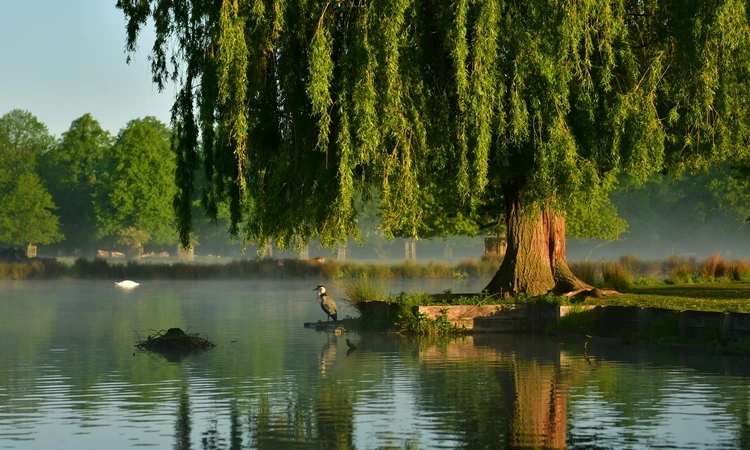
Bushy Park
Welcome to Bushy Park, the second largest of London’s eight Royal Parks at over 1000 acres, home to wild deer and located north of Hampton Court Palace.
-
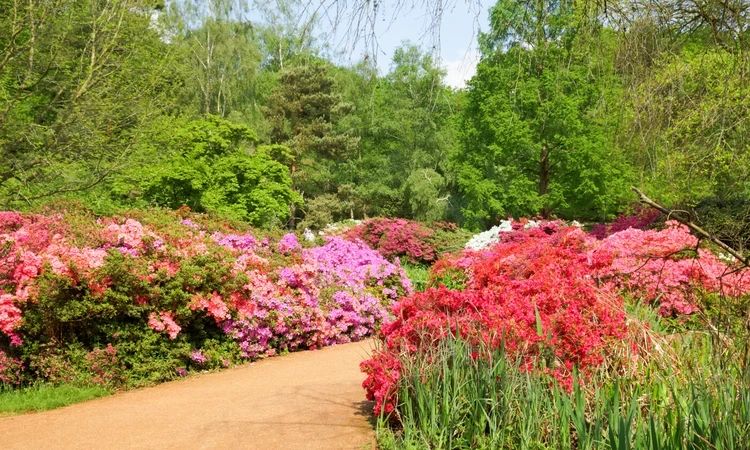
Richmond Park
Welcome to Richmond Park, one of London’s eight Royal Parks, covering 2,500 acres and home to ancient trees, herds of deer and the Isabella Plantation.
-
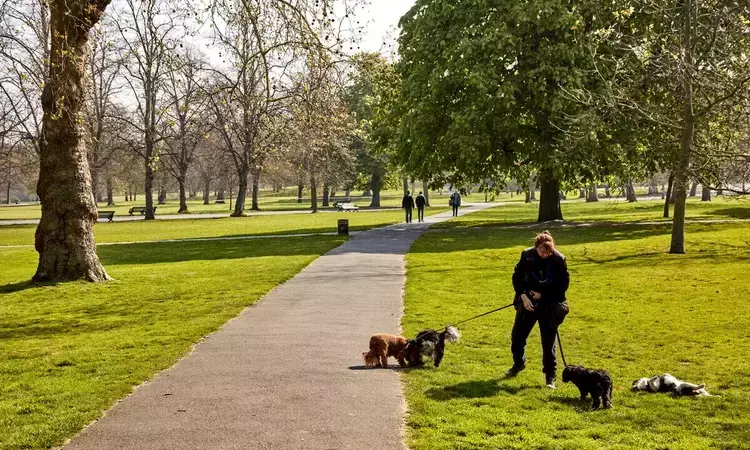
Commercial dog walking licences
If you wish to use the parks for commercial dog walking purposes you must be licensed. Find out more.
Related Articles
-
 Read
Read'Dogs on leads' to be compulsory during the deer birthing
'Dogs on leads' to be compulsory during the deer birthing season in Bushy and Richmond Parks
-
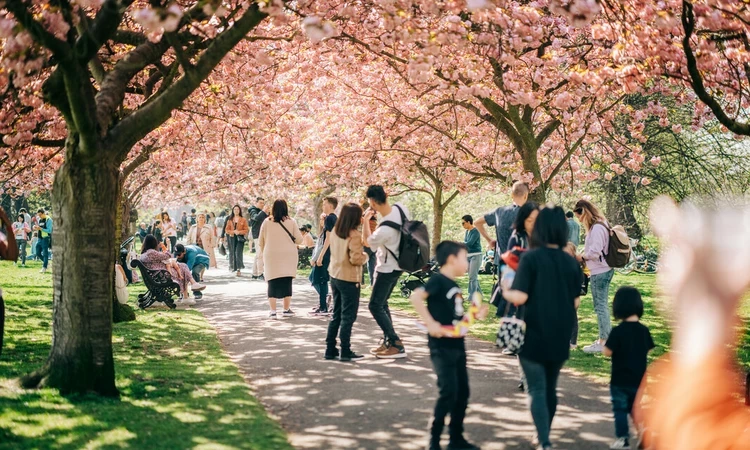 Read
ReadTen things you might not know about cherry trees
The different varieties of cherry trees around the Royal Parks are some the most popular sights in London each spring
-
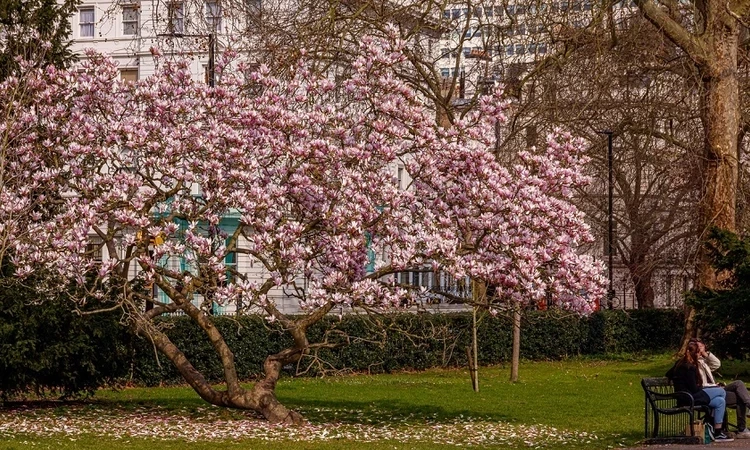 Read
ReadTop things to do in the Royal Parks this spring
It’s time to turn down your thermostat – spring in London is here and there’s plenty to do and enjoy in the Royal Parks.